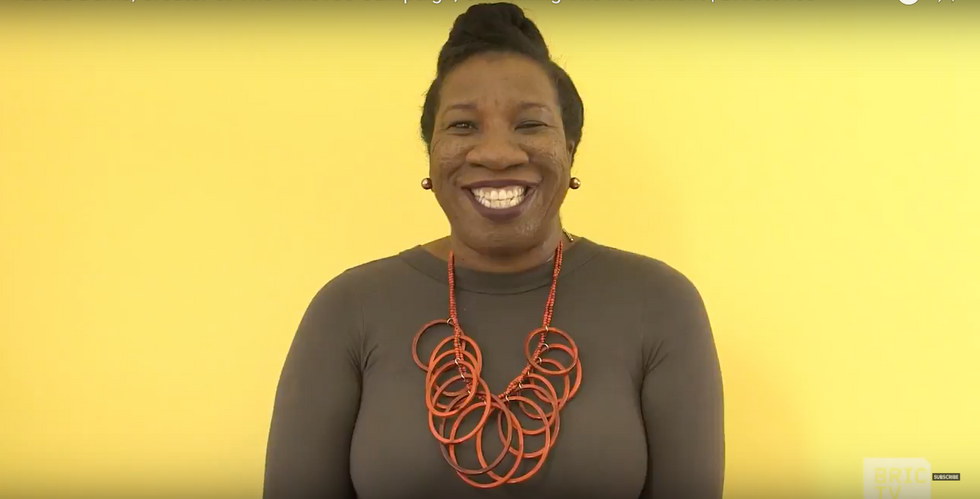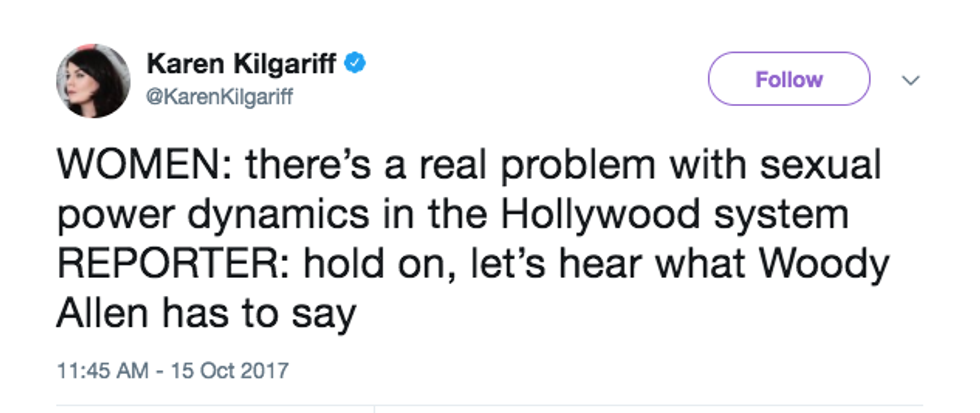White men have taken the microphone away from black women within the #MeToo movement, in order to ironically claim that they are allies to women. Their attempts are, at best, thinly veiled excuses to promote their blatant misogyny and can be seen as a metaphor for power and privilege and how it has impacted the narrative surrounding sexual assault and harassment.
There have been copious articles written by privileged white male reporters discussing their perspectives and opinions on the #MeToo movement. For anyone who lives under a rock, or maybe I should say wears a blindfold of privilege, and doesn’t know what the #MeToo movement is, I’ll tell you.
The movement aims to call out rape culture and raise awareness about the disturbing prevalence of sexual assault within our society. The movement was started in 2007 by Tarana Burke, who created #MeToo as a platform to reach out to young women of color who are survivors of sexual assault in order to let them know that they were not alone.
It’s not a coincidence that a woman of color created the #MeToo movement.
Actually, the fact that a black woman created the original movement is pretty representative of the irony of the current movement and what it has become under the pressure of mainstream media. The movement started as a way to empower the lesser privileged and then became an excuse for us to disguise our prejudice under the guise of feminism. We all, in our effort to adopt a movement that empowers the less privileged, have pushed down black women under the heavy weight of both white privilege and male privilege.
Nobody knows Tarana Burke's name, an activist who gave power to the people, but everybody knows Harvey Weinstein's name, a serial sexual abuser. That's happened for a reason.
A simple definition of privilege is:
“Unearned access to resources (social power) only readily available to some people as a result of their social group membership,” - (Gender, Power and Pivilege, Adams).
Taking this definition into consideration under the patriarchal lens, white men are more privileged than black women, for example, and therefore less likely to experience sexual assault. This is not a point meant to invalidate the experiences of sexual assault associated with white male survivors. They too are victims that deserve recognition. Tarana Burke says herself that sexual assault knows no age, race or gender. However, society views and reacts to victims' experiences differently based on their level of privilege.
It's hard for anyone to come forward about their experiences with sexual assault. The very nature of rape culture puts fault and blame on victims. But its even harder for lesser privileged individuals. Black women don't have a voice. They aren't listened to or believed when they come forward about their encounters with sexually motivated violence or harassment.
This is clear when we review events from the Weinstein scandal. It took hundreds of years for our social climate to progress enough to even allow anyone to speak out against sexual assault in the first place, but now that this small space has been created, it is selective. Women of color aren't listened to or treated the same as their white counterparts.
This is especially disturbing when we remember that women of color are more likely to be abused than white women.
That's why we need to listen to the lesser privileged who are more prodigiously impacted by rape culture. Give Lupita Nyong'o a voice; give Selma Hyack a voice; give Tarana Burke a voice.
I've seen more articles on #MeToo by men calling themselves allies to the movement such as Fuck Abuse, Kill Power, and He Abusado than articles by women who are actual survivors. We need male support, but support comes in many different forms. None of these forms include talking over survivors.
You don't need to interrupt a woman sharing her experiences with sexual assault in order to call your self her ally. If you are a real ally, just let her speak.
Furthermore, why are white women getting more attention than women of color? I think the answer is simple.
Just as Tarana Burke says, black women are treated differently.
I interpret this statement as being both literal and metaphorical. It is very literal in the sense that black women have less of a voice within the #MeToo movement, even though the movement was created by a black woman herself. It is metaphorical in that those with any degree of marginalization and discrimination are abused by the system. They're more likely to suffer abuse and less likely to be heard.
This is where intersectionality prominently displays itself. White men, the privileged, somehow have a louder voice than white women on an issue about patriarchally based sexual assaults. And as for black women, the least privileged? They have no voice.


















